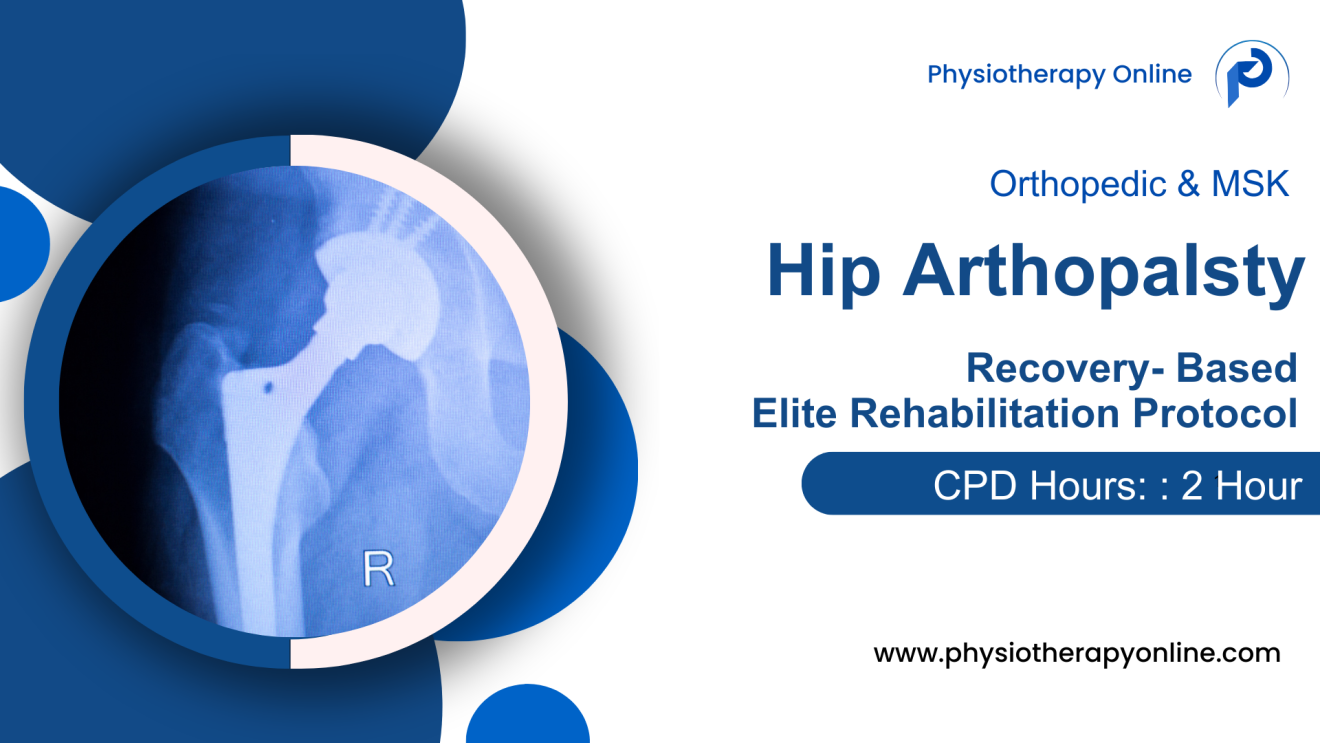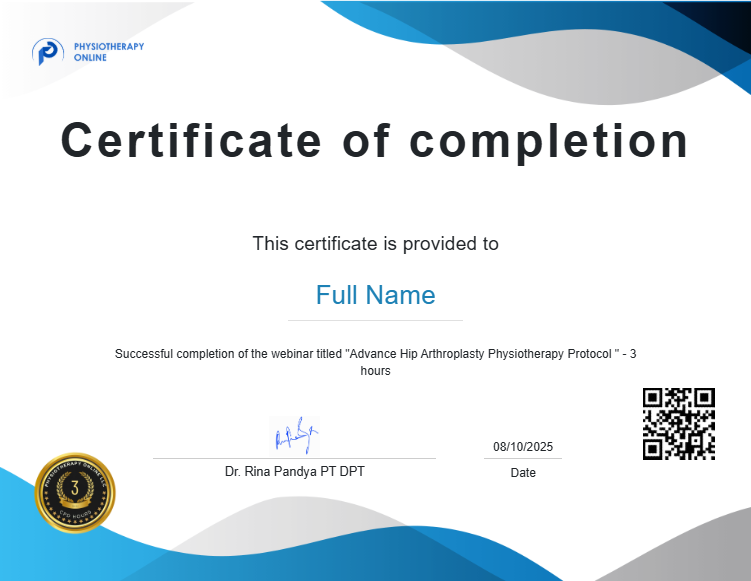About Course
Hip Arthroplasty Physiotherapy Protocol Bundle Aims to
Within the past decade, hip arthroscopy has become one of the fastest-growing orthopedic procedures in the United States. Some figures suggest a 150% rise in arthroscopies in adult and pediatric populations.
The major etiologies for persistent pain after hip arthroscopy falls into the following five major categories:
- Femoroacetabular impingement (FAI)
- Instability
- Arthritis
- Intra-articular pathologies
- Extra-articular factors
Because new surgical procedures are constantly evolving, it is the responsibility of the physical therapist to stay up to date with the most current rehabilitation techniques facilitating a quicker return to work with improved quality of life.
This course covers the latest progression criteria for phase-based physical therapy protocols, indications, contraindications, the latest post-op protocols, and clinical practice guidelines from 2020.
Candidates are going to be immersed in interactive case studies, pop-up questions, and critical thinking.
Learning Objectives
At the end of the webinar, the participant will be able to :
- List 4 indications for hip arthroplasty
- List 4 complications of early and late hip arthroplasty
- Develop Physical therapy protocols tailored to individual patients
- Knowledgeable of phased progression of physical therapy
Who Should Enroll
- Physiotherapist
- Orthopedics
- Occupational Therapist
CPD Credit Hours
2 Hours
Resources
- 30 Days Access to Learning Resources
- Downloadable Course Material
- CPD Certificate
Course Presenter:
Dr. Rina’s physical therapy career spans over 23 years, through the UK, the USA and the Middle East. She has worked in Nationalized Healthcare Services, American health care and self pay services in acute care, in-patient rehab, skilled nursing facility, home healthcare and outpatient clinic. In addition to being a clinician she has developed specialty programs based on evidence-based practice in her role as a project manager. She has also managed the Physical Therapy department in the capacity of Head of Department in a premier private hospital in Oman. Rina is an internationally published webinar presenter; many of her courses are highlighted on Physiopedia/ Physio Plus. Her pocket books are now available on Amazon titled-- Orthopedic Assessments made easy Dr. Pandya graduated from Manipal University, India in 2000 as well as University of Michigan, in 2018 with a Doctor of Physical Therapy. Rina conducts live webinars and is part of the continuing professional development teaching community with courses published in the UK, US, South Africa, Ireland and Australia. Rina is a member of APTA, HCPC-UK and OAP-Oman.
Disclaimer: Our online physiotherapy courses meet the criteria and guidelines for CPD (Continuing Professional Development). The CPD hours indicated on the certificate contribute towards fulfilling professional standards and requirements necessary for CPD audits conducted by the HCPC and AHPRA. These CPD hours are important for maintaining physiotherapy registration and ensuring compliance with CPD audit and Physiotherapy registration renewal processes. Our courses are recognized as valuable continuing education resources across the UK, Australia, New Zealand, and throughout Asia and the Middle East.


